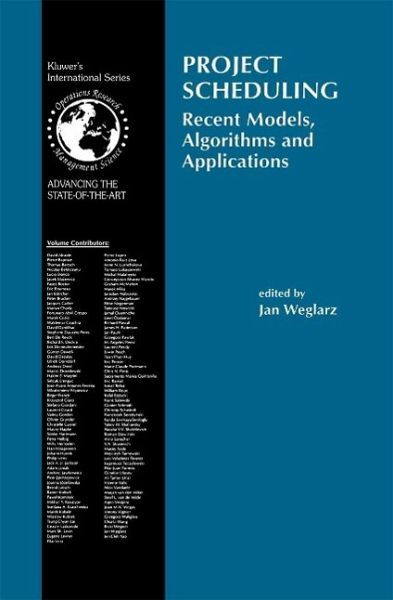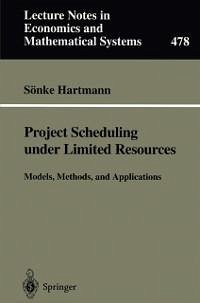
Project Scheduling (eBook, PDF)
Recent Models, Algorithms and Applications
Redaktion: Weglarz, Jan
Versandkostenfrei!
Sofort per Download lieferbar
160,95 €
inkl. MwSt.
Weitere Ausgaben:

PAYBACK Punkte
80 °P sammeln!
Project scheduling problems are, generally speaking, the problems of allocating scarce resources over time to perform a given set of activities. The resources are nothing other than the arbitrary means which activities complete for. Also the activities can have a variety of interpretations. Thus, project scheduling problems appear in a large spectrum of real-world situations, and, in consequence, they have been intensively studied for almost fourty years. Almost a decade has passed since the multi-author monograph: R. Slowinski, 1. W~glarz (eds. ), Advances in Project Scheduling, Elsevier, 198...
Project scheduling problems are, generally speaking, the problems of allocating scarce resources over time to perform a given set of activities. The resources are nothing other than the arbitrary means which activities complete for. Also the activities can have a variety of interpretations. Thus, project scheduling problems appear in a large spectrum of real-world situations, and, in consequence, they have been intensively studied for almost fourty years. Almost a decade has passed since the multi-author monograph: R. Slowinski, 1. W~glarz (eds. ), Advances in Project Scheduling, Elsevier, 1989, summarizing the state-of-the-art across project scheduling problems, was published. Since then, considerable progress has been made in all directions of modelling and finding solutions to these problems. Thus, the proposal by Professor Frederick S. Hillier to edit a handbook which reports on the recent advances in the field came at an exceptionally good time and motivated me to accept the challenge. Fortunately, almost all leading experts in the field have accepted my invitation and presented their completely new advances often combined with expository surveys. Thanks to them, the handbook stands a good chance of becoming a key reference point on the current state-of-the-art in project scheduling, as well as on new directions in the area. The contents are divided into four parts. The first one, dealing with classical models -exact algorithms, is preceded by a proposition of the classification scheme for scheduling problems.
Dieser Download kann aus rechtlichen Gründen nur mit Rechnungsadresse in A, B, BG, CY, CZ, D, DK, EW, E, FIN, F, GR, HR, H, IRL, I, LT, L, LR, M, NL, PL, P, R, S, SLO, SK ausgeliefert werden.












